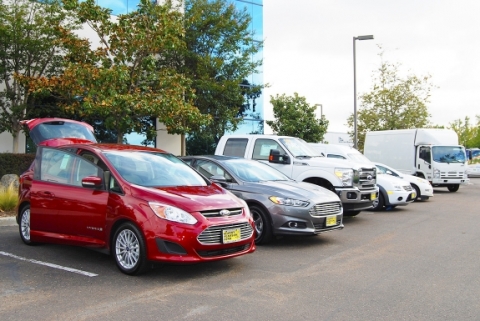CSE worked with California Clean Cities Coalitions to accelerate the adoption of alternative fuel vehicles and infrastructure by California’s fleets, employers, and cities. The project was funded by the Department of Energy (DOE) through an award to the Bay Area Air Quality Management District (BAAQMD). The California Statewide Alternative Fuel and Fleets (CA STAFF) project:
- Conducted workshops for cities, employers, and fleets on electric vehicle, hydrogen, and natural gas infrastructure and vehicle best practices.
- Provide one-on-one assistance to fleets to support the deployment of alternative fuel vehicles (AFV).
- Completed needs assessment on alternative fuel vehicle training for first responders and fleet technicians.
Available to download: Needs Assessment for Alternative Fuel Vehicle Training in California

Program at a Glance
Program Goals
Advance California alternative fuel market by eliminating barriers to the deployment of alternative fuel vehicle (AFV) and infrastructure at workplaces and in fleets.
CSE's Role
Coordinate California’s Clean Cities Coalitions to assess alternative fuel related training needs and promote training opportunities statewide.
In conjunction with the San Diego Regional Clean Cities Coalition, assist San Diego County cities, fleets, and employer’s transition to alternative fuel vehicles and install fueling and charging infrastructure.
Technologies
Key Partners
Bay Area Air Quality Management District (BAAQMD), California Clean Cities Coalitions (CCC): San Diego Regional CCC, Central Coast CCC, San Francisco CCC, San Joaquin Valley CCC, Los Angeles CCC, Sacramento CCC, Silicon Valley CCC, Southern California CCC, Western Riverside County CCC, Long Beach CCC, East Bay CCC, Coachella Valley Region CCC, Antelope Valley CCC
State Policies Supported
Ab 32, SB 275, Ab 118, Governor’s Exec. Order B-16-2012 ZEV Action Plan
Impact Statement
Facilitate growth of California’s alternative fuel and advanced technology vehicle markets while ensuring state’s workforce is properly trained to address alternative fuel vehicles and infrastructure incidents.

